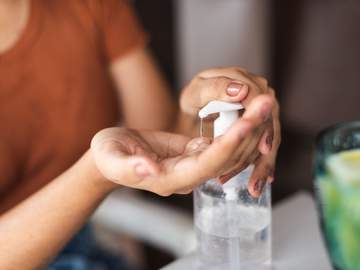What to KnowAntiseptics and disinfectants are both substances that we use to clean things, but these words are often used in different ways. An antiseptic is usually used to clean living tissue, like skin (“after I fell off my bike I put antiseptic on my knee”). A disinfectant is something we use to eliminate bacteria, viruses, and fungi on hard surfaces, like toilets (“after my in-laws left I spent an hour scrubbing the bathroom with disinfectant”).

Both disinfectants and antiseptics are substances that are used to destroy or inhibit things that can make us sick (like bacteria and other microorganisms, viruses, and fungi). Does this mean they are the same thing? No, it does not, and here are some of the ways you can tell them apart.
We use the word disinfectant for chemical agents that are used primarily on hard surfaces (your bathtub, for example) or in water supplies (such as chlorine tablets in your pool). Common household disinfectants include bleach solutions and wipes made with ethyl alcohol. Here are some ways you might see the word disinfectant (not the substance) used.
Make sure that all medical equipment is sterilized with disinfectant.
Many cities use chlorine as a disinfectant for their public water supply.
We use the word antiseptic for substances that are safe to apply, with precautions, to living tissue, such as our skin or mouths. Mouthwash, for example, is an antiseptic. It cleans your mouth (and freshens your breath, to boot!), but is not made for wiping down the top of your kitchen stove. Here are some ways you might see the word antiseptic (not the substance) used.
You should always clean a wound with antiseptic.
Isopropyl alcohol is commonly used in hand sanitizer as an antiseptic.
Broadly speaking, antiseptics are used to clean living things, while disinfectants are for non-living things. If it helps, you can try to remember that antiseptic is related to sepsis (a potentially life-threatening bodily response to the spread of pathogens in the bloodstream); only living things can get sepsis (your doorknob cannot catch it, for instance), which is why living things get antiseptics. And also try to remember that you should never, ever, ever gargle with a disinfectant.




